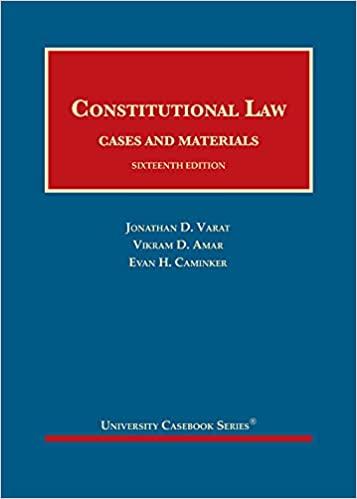Question
Parody is one of the types of expressions that are protected by the fair use doctrine. For those of you familiar with performers like Al
Parody is one of the types of expressions that are protected by the fair use doctrine. For those of you familiar with performers like Al Yankovic, he is one of those who has made a career of parody. Also, magazines like National Lampoon and Mad Magazine do not need the permission of the copyright owners in order to make a parody of a copyrighted work.
Regarding music, we will take a look at two pairs of interesting cases. The first involves the classic Chiffon's song He's So Fine and George Harrison's My Sweet Lord. (For those of you not familiar with the songs, just Google those songs - or for those of you more concerned about your privacy, just search for them using DuckDuckGo :). In this first case, George Harrison was found to have infringed the copyright on He's So Fine, largely because Harrison copied and repeated a three-note sequence several times. For more about these cases https://www.benedict.com/audio/harrison/harrison
Compare these cases with the one involving Roy Orbison's classic song Pretty Woman and Two Live Crew's version of it. If you find those two songs and listen to the first 30 or 45 seconds, you will realize that the Two Live Crew version basically copied the introduction, the melody, and the words. Yet, the US Supreme Court found in favor of Two Live Crew on the infringement claim. How come? What was the difference? (For more about these cases https://www.benedict.com/audio/crew/crew
and on page 38 of Bound by Law.)
Step by Step Solution
There are 3 Steps involved in it
Step: 1

Get Instant Access to Expert-Tailored Solutions
See step-by-step solutions with expert insights and AI powered tools for academic success
Step: 2

Step: 3

Ace Your Homework with AI
Get the answers you need in no time with our AI-driven, step-by-step assistance
Get Started


